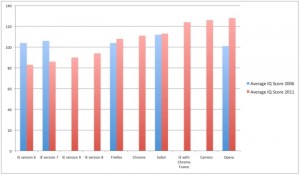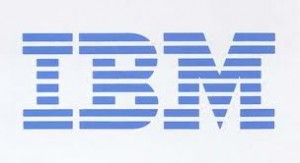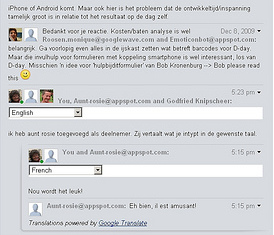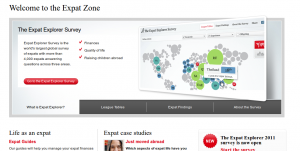The recent report that claimed that Internet Explorer
(IE) usersscored lower on IQ tests than users of other Web browsers turns out to have been a hoax.
The ‘report,’ which was published as being from AptiQuant (a fictitious company), took the news world by storm, and was covered on influential websites like CNN, BBC, CNET and Forbes.
In reality, the AptiQuant website was setup by Tarandeep Gill, a web entrepreneur, to create awareness about the incompatibilities of IE6.



 David Mercer tackled the
David Mercer tackled the  The cost of advertising on Facebook is rising fast, according to marketing firm TBG Ditigal’s Global Facebook Advertising Report for Q2 2011, with cost-per-click (CPC) rates up an average 74% across the US, UK, France and Germany. The figures could raise eyebrows among companies marketing to expats, many of whom leverage heavily on social media to build connections with the online expat community. Said the report:
The cost of advertising on Facebook is rising fast, according to marketing firm TBG Ditigal’s Global Facebook Advertising Report for Q2 2011, with cost-per-click (CPC) rates up an average 74% across the US, UK, France and Germany. The figures could raise eyebrows among companies marketing to expats, many of whom leverage heavily on social media to build connections with the online expat community. Said the report: Internet marketing has given rise to all manner of bogus cottage industries, not least among them what
Internet marketing has given rise to all manner of bogus cottage industries, not least among them what  HSBC’s
HSBC’s